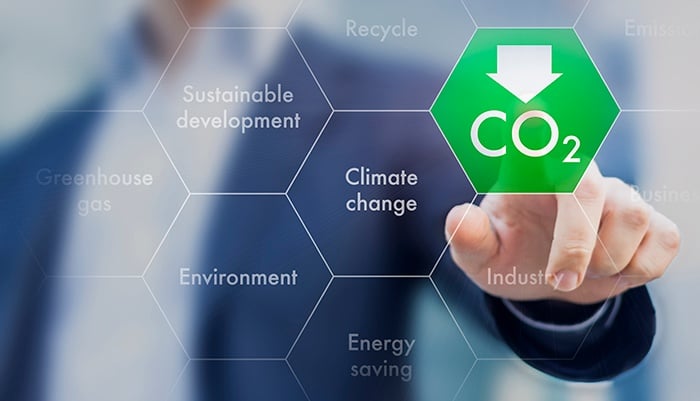Using data and technology to tackle emissions and reduce waste in field service
Nov 14, 2017 • Features • bybox • Carbon Emissions • Claudine Mosseri • Parts Pricing and Logistics
Claudine Mosseri, General Manager, ByBox explains how the use of technology and Big Data has allowed field service to lower emissions and reduce environmental impact...
Simply type the word emissions into Google news, and it’s clear that the issue of what’s coming out of our exhausts has never been so high on the agenda. Obviously, this has a tremendous impact on those who move items and parts around the country daily.
Recent news about the number of vehicle fleets looking at shifting the proportions of their alternative fuel vehicles is just the tip of this iceberg. However, the use of technology and big data has allowed field service to lower emissions and reduce the environmental impact of their, and others’, businesses, beyond simply looking at the fuel sources of their engines.
Operating in the sector that we do, of course we are all aware of the simple fact that moving goods from A to B creates emissions, and the vehicles used in large supply chains are often among the worst polluters. Heavy good vehicles and vans produce, on average 7% of the UK’s overall carbon emissions.
The industry’s environmental role goes well beyond head office commitments to carbon offsetting.
The industry’s environmental role goes well beyond head office commitments to carbon offsetting.
Our products, such as virtual warehouses, use data so that wherever your parts are, they can be accessed and moved to the right place. For example, in a busy field service supply chain, there will always be a significant amount of stock out in the field.
This might include good stock that an engineer has just picked up or it might also include returns which have just been taken off a customer site. This data tells you precisely what stock you have in the field and where it is. Clever stock systems, big data and tracking allow a logistics manager to raise an order, reroute and group together items, ultimately reducing congestion and reducing carbon emissions.
Away from cities, deliveries still require large vehicles, so to cut down on emissions, many are looking to instead limit their mileage. One approach involves investigating downtime data. For example, when replacing parts for a client, we spotted that typically, within a week of part A breaking and a replacement being issued, part B would also fail.
Away from cities, deliveries still require large vehicles, so to cut down on emissions, many are looking to instead limit their mileage.
ByBox has integrated technology and data to every part of its products, with Smart Boxes, our mobile applications, the use of our Thinventory™ platform and Stockonnect which has systematically allowed us to connect devices into our field services. With continuous changes like these occurring and influencing how we live our lives, there is a real demand on supply chains to ensure that when products or parts wear out or fail, they can be fixed or replaced quickly.
Of course, not all of these technological solutions will work for every business. Some face a lack of 24/7 access to their facilities, or have to factor in travel to remote locations. ByBox is lucky: point to point delivery is part of the DNA of the business, so we move the data, not the part.
However, by looking at the big picture and considering the influences of increasing automation on a number of different industries, it is clear that the field services sector has a bright and fascinating role to play in keeping businesses and devices running both effectively and environmentally.
Be social and share




















 Field Service News is published by 1927 Media Ltd, an independent publisher whose sole focus is on the field service sector. As such our entire resources are focused on helping drive the field service sector forwards and aiming to best serve our industry through honest, incisive and innovative media coverage of the global field service sector.
Field Service News is published by 1927 Media Ltd, an independent publisher whose sole focus is on the field service sector. As such our entire resources are focused on helping drive the field service sector forwards and aiming to best serve our industry through honest, incisive and innovative media coverage of the global field service sector.
Leave a Reply